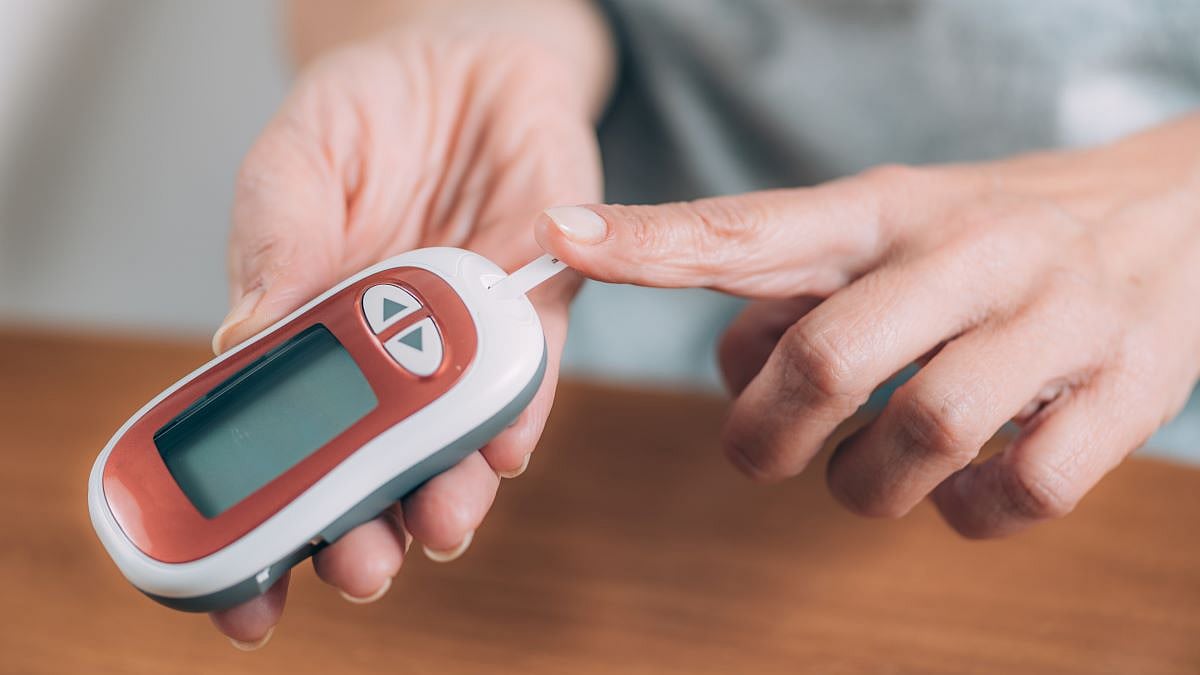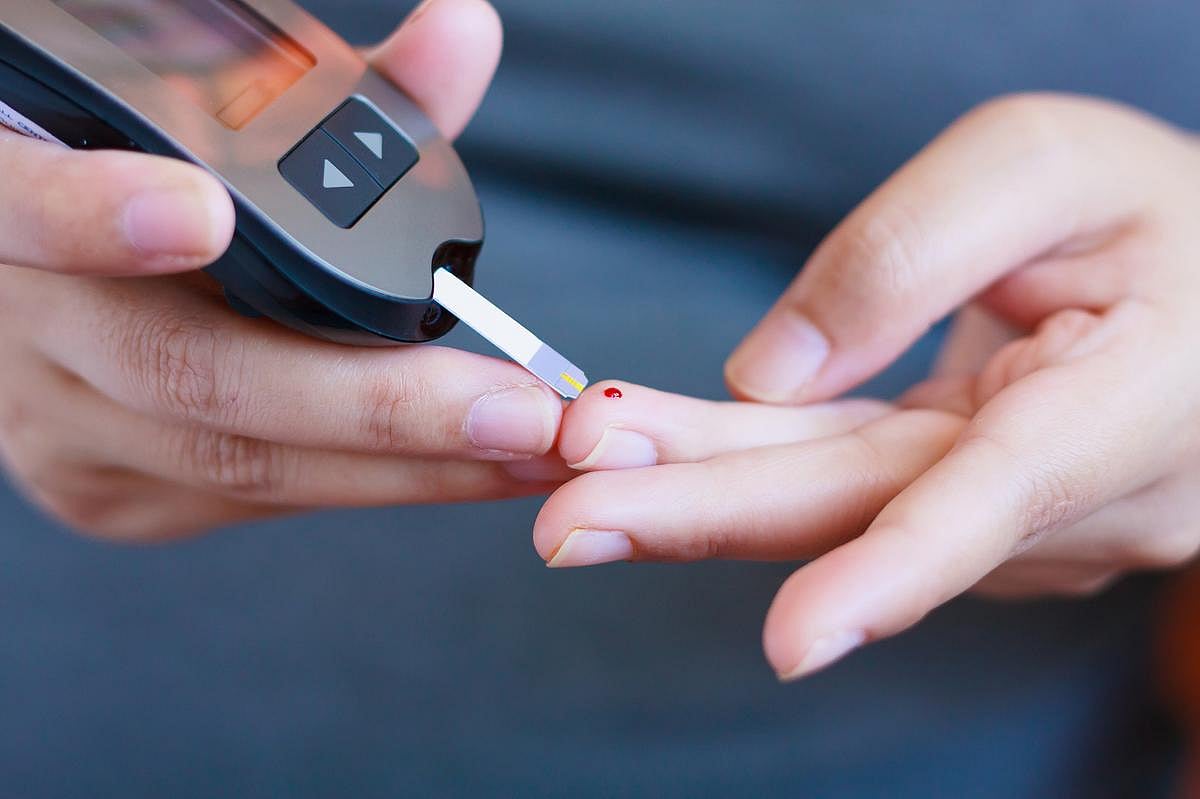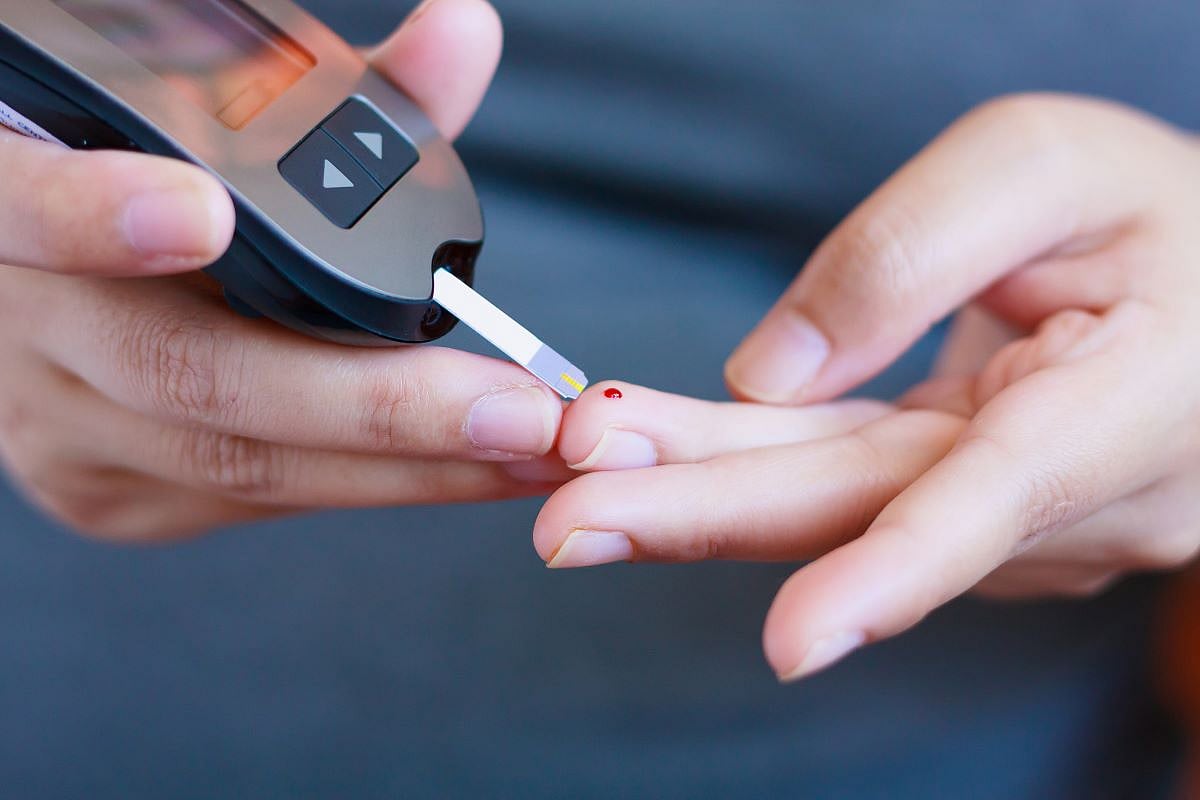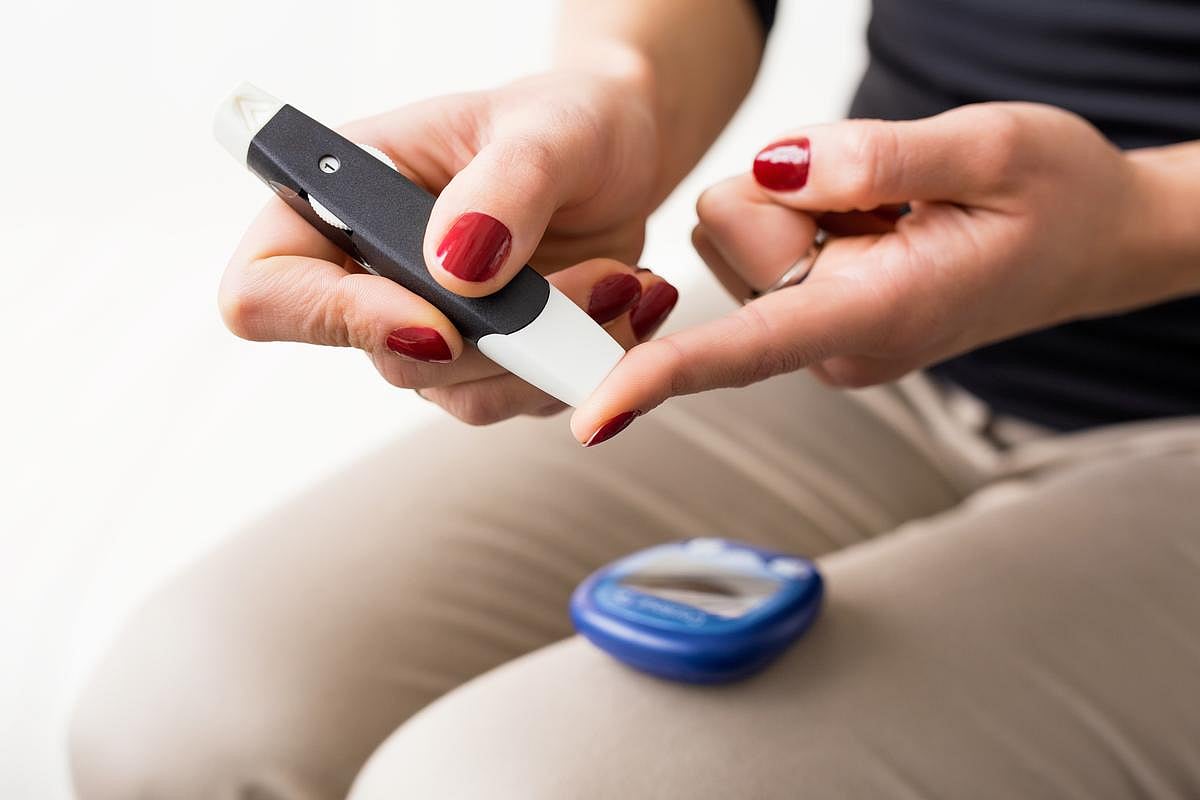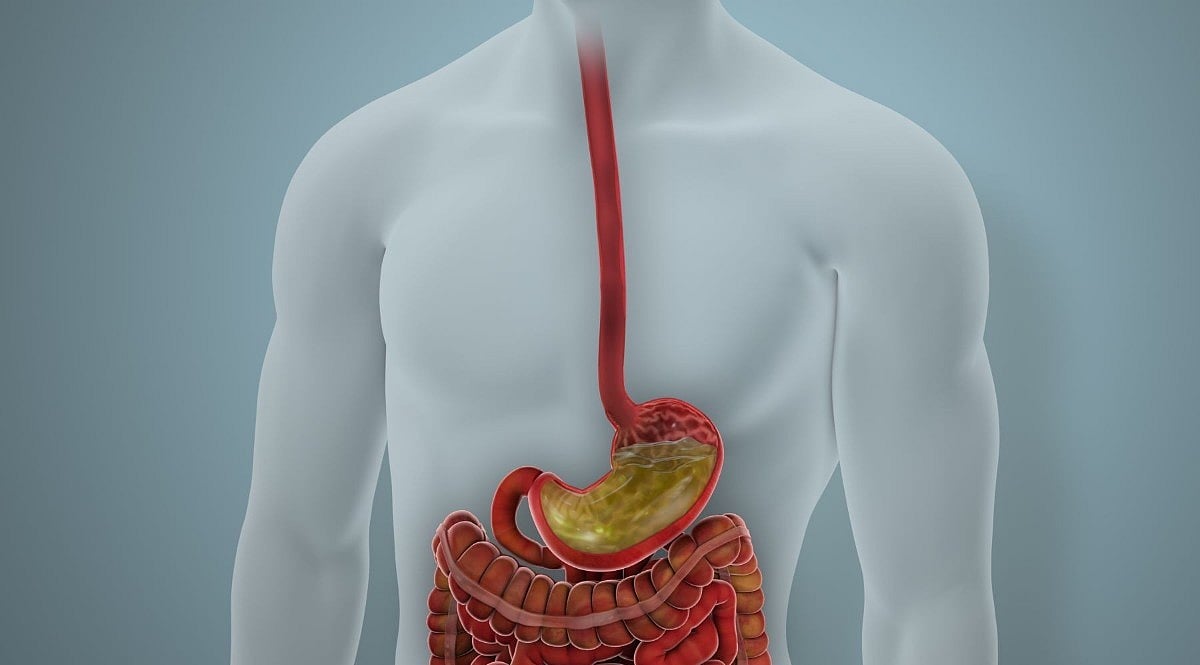Get Healthy!
Results for search "Diabetes: Type II".
Health Videos - 11
Health News Results - 120
Coffee may do more than boost energy.
New research suggests that certain compounds found in roasted coffee beans could help slow how quickly sugar enters the bloodstream, a finding that could one day support new foods aimed at managing type 2 diabetes.
Scientists have identified three previous...
- I. Edwards HealthDay Reporter
- |
- January 19, 2026
- |
- Full Page
THURSDAY, Dec. 4, 2025 (HealthDay News) — Diabetes can be literally heart-stopping, a new study asserts.
People with either type 1 or type 2 diabetes have a dramatically higher risk of sudden cardiac death, which occurs when the heart stops beating, researchers reported today in the ...
- Dennis Thompson HealthDay Reporter
- |
- December 4, 2025
- |
- Full Page
Chowing down on ultra-processed foods – fast food, packaged snacks, heat-and-eat meals – increases young adults’ risk of health problems that contribute to diabetes, a new study warns.
An increase in ultra-processed food intake is associated with a higher risk of
New research suggests that those with type 2 diabetes (T2D) and a genetic risk for dementia can significantly lower their odds for cognitive problems by adopting a heart-healthy lifestyle.
The preliminary findings — to be presented Saturday at an American Heart Association (AH...
- Deanna Neff HealthDay Reporter
- |
- November 5, 2025
- |
- Full Page
Low-dose aspirin is no longer universally recommended to prevent heart health emergencies, but it might help people with type 2 diabetes, a new study says.
People with type 2 diabetes who took low-dose aspirin were less likely to have a
Use lifestyle interventions to show no signs of type 2 diabetes for at least three months? There’s a code for that: E11.A.
Starting Oct. 1, 2025, a new diagnosis code was added to the detailed list of codes used by health care providers: the remission of type 2 diabe...
- Deanna Neff HealthDay Reporter
- |
- October 15, 2025
- |
- Full Page
Type 2 diabetes appears to double a person’s risk for life-threatening sepsis, a new study says.
Men and people under 60 with diabetes are particularly at risk for sepsis, a condition in which the immune system overreacts to infection, researchers reported this week at the annual meeting of the European Association for the Study of Diabetes in Vienna.
The research confirms an ...
- Dennis Thompson HealthDay Reporter
- |
- September 19, 2025
- |
- Full Page
Weed might nearly quadruple a person’s risk of developing type 2 diabetes, a new study says.
People who use cannabis have a 3.7 times greater risk of type 2 diabetes compared to the general population, researchers reported Monday at a meeting of the European Association for the Study of Diabet...
- Dennis Thompson HealthDay Reporter
- |
- September 16, 2025
- |
- Full Page
Smokers have a higher risk of developing type 2 diabetes, especially if they are genetically predisposed to the condition, a new study says.
People who ever smoked at all have an elevated risk of all four subtypes of type 2 diabetes, and heavy smokers are at even greater risk, researchers reported S...
- Dennis Thompson HealthDay Reporter
- |
- September 15, 2025
- |
- Full Page
Detecting diabetes might soon be as easy as breathing into a device, a new study says.
An experimental breath test sorted out type 2 diabetes patients from healthy people, based on their exhalations, researchers report in the September issue of the
A Mediterranean-style diet can significantly decrease risk of type 2 diabetes in people who are overweight or obese, a new study says.
People had 31% lower odds of diabetes if they adhered to a Mediterran...
- Dennis Thompson HealthDay Reporter
- |
- August 26, 2025
- |
- Full Page
Diabetes risk appears to cluster in households, a new study says.
Three-quarters of people at risk for developing type 2 diabetes are living under the same roof as another person who either already has diabetes or carries risk factors for the condition, researchers will report at the upcoming annual...
- Dennis Thompson HealthDay Reporter
- |
- August 19, 2025
- |
- Full Page
The next time you’re asked "Fries with that?," maybe say no: Regular consumption of the potato-based treat raises your odds of type 2 diabetes by 20%, new research shows.
On the other hand, swapping out those fries for whole-grain foods could lower your odds for the blood sugar disease by 19%, the...
- Ernie Mundell HealthDay Reporter
- |
- August 7, 2025
- |
- Full Page
So-called “forever chemicals” could be increasing Americans’ risk of developing type 2 diabetes, a new study says.
Higher blood levels of per- and polyfluoroalkyl substances (PFAS) are associated with a significantly greater risk of developing type 2 diabetes, the form of the disea...
- HealthDay Reporter
- Dennis Thompson
- |
- July 23, 2025
- |
- Full Page
A diet meant to lower blood pressure also can be effective in treating type 2 diabetes after a few tweaks, a new clinical trial indicates.
The DASH (Dietary Approaches to Stop Hypertension) diet effectively treated high blood pressure among type 2 diabetics, researchers reported recently in
- HealthDay Reporter
- Dennis Thompson
- |
- June 17, 2025
- |
- Full Page
Prompt treatment with a drug combo can effectively manage chronic kidney disease in people with type 2 diabetes, a new clinical trial shows.
Patients prescribed the combination of finerenone and empagliflozin experienced a 52% decrease in their urinary albumin-to-creatinine ratio, researchers report...
- HealthDay Reporter
- Dennis Thompson
- |
- June 9, 2025
- |
- Full Page
Twice as many Americans now face the increased risk of death that comes from having both high blood pressure and type 2 diabetes, a new study reports.
About 12% of the U.S. population had high blood pressure and type 2 diabetes at the same time in 2018, up from 6% in 1999, researchers reported recen...
- HealthDay Reporter
- Dennis Thompson
- |
- May 30, 2025
- |
- Full Page
Food additive mixtures commonly found in diet drinks, soups, dairy desserts and sauces may slightly increase a person’s risk of type 2 diabetes, a new study says.
A mixture of additives commonly found in artificially sweetened beverages increased risk of type 2 diabetes by 13% among a group of...
- HealthDay Reporter
- Dennis Thompson
- |
- April 9, 2025
- |
- Full Page
Wearing a smartwatch might do more than track steps (or your texts) -- it could be a powerful tool for helping people with type 2 diabetes stay active, a new study says.
Participants were more likely to start and maintain an exercise regimen if they had a smartwatch providing them feedback and encou...
- HealthDay Reporter
- Dennis Thompson
- |
- March 31, 2025
- |
- Full Page
People with a higher genetic risk for type 2 diabetes also have a higher risk of heart attack, stroke and other heart-related diseases.
But controlling that risk could be as simple as picking up a TV remote and hitting the “off” switch, a new study suggests.
Limiting TV watching to no more than one hour a day appears to help offset the increased risk of
“Hidden hunger” -- low levels of essential vitamins or minerals -- is common among people with type 2 diabetes, a new evidence review says
Overall, as many as 45% of type 2 diabetics are suffering multiple deficiencies in vitamins, minerals and electrolytes, researchers reported Jan. 28 ...
- HealthDay Reporter
- Dennis Thompson
- |
- January 29, 2025
- |
- Full Page
People can reverse their type 2 diabetes through a combination of calorie cutting and medication, a small clinical trial says.
Overweight and obese adults caused their diabetes to go into remission by following a calorie-restricted diet and taking the prescription diabetes drug
Taking even high doses of supplementary vitamin D won't lower an older person's odds for type 2 diabetes, new research confirms.
Vitamin D supplements may have other benefits, but in otherwise healthy folks with sufficient levels of the nutrient, "our findings do not suggest benefits of long-term mo...
- HealthDay Reporter
- Ernie Mundell
- |
- December 4, 2024
- |
- Full Page
A type 2 diabetes diagnosis before age 50 comes with a health risk that patients might not expect.
Especially if they are obese, these folks are more likely to develop dementia later, new research warns.
"Our study suggests that there may be a cognitive consequences to earlier onset type 2 diabetes, and it points to the need for strategies to prevent dementia that consider both
- HealthDay Reporter
- Carole Tanzer Miller
- |
- November 20, 2024
- |
- Full Page
Fourteen percent of the world's people -- more than 800 million -- now have diabetes, a doubling of the global rate for the blood sugar disease since 1990, new statistics show.
Type 2 diabetes, which makes up 95% of cases, is surging in poorer countries. However, across these resource-poor nations, ...
- HealthDay Reporter
- Ernie Mundell
- |
- November 14, 2024
- |
- Full Page
Periodontal (gum) disease and diabetes are locked in a grim partnership aimed at undermining your health, experts warn.
“Recent research has shown that diabetes is not only a major risk factor for periodontitis but that the relationship between the two conditions is bidirectional, meaning they both influence and exacerbate one another,” said
People with both type 2 diabetes and chronic kidney disease face a heart health double-whammy, a new study says.
Men with both diabetes and kidney disease will develop heart health problems 28 years earlier than those without either condition, researchers reported today at an A...
- HealthDay Reporter
- Dennis Thompson
- |
- November 11, 2024
- |
- Full Page
Menopausal women with frequent hot flashes and night sweats are more likely to develop type 2 diabetes, a new study warns.
Middle-aged women who regularly suffer those well-known symptoms of menopause are 50% more likely to wind up with type 2 diabetes, researchers ...
- HealthDay Reporter
- Dennis Thompson
- |
- November 4, 2024
- |
- Full Page
Type 2 diabetes is caused in part by the failure of pancreatic beta cells to respond as they should to blood sugar.
Now, new research suggests that switching to a low-carbohydrate diet might correct that beta cell dysfunction, boosting patients' health.
"People with type 2 diabetes on a low-carbohydrate diet can recover their beta cells, an outcome that cannot be achieved with medic...
- HealthDay Reporter
- Ernie Mundell
- |
- October 23, 2024
- |
- Full Page
A new, reassuring study finds that men can take the diabetes drug metformin without worrying that their offspring will suffer from birth defects.
Recent research raised concerns that metformin could promote birth defects in children by damaging the quality of a man&rs...
- HealthDay Reporter
- |
- October 17, 2024
- |
- Full Page
Results from a very small study suggest that a combination of the diabetes drug Ozempic and an innovative new intestinal procedure could help erase the need for insulin in folks with type 2 diabetes.
The new trial hasn't yet been published in a peer-reviewed journal and it included only 14 patients.
However, Dutch researchers report that after six months of the combo therapy, 12 o...
- HealthDay Reporter
- Ernie Mundell
- |
- October 14, 2024
- |
- Full Page
Weekly insulin shots can help control both type 1 and type 2 diabetes as well as daily injections do, a pair of clinical trials have found.
A new class of insulin called efsitora alfa has been designed to require injections only once a week, researchers said.
Two phase 3 trials presented Tuesday at the ...
- HealthDay Reporter
- Dennis Thompson
- |
- September 11, 2024
- |
- Full Page
Taking steroids more than doubles a person’s risk of developing type 2 diabetes, a new study warns.
Patients taking steroid pills, injections or infusions are 2.6 times more likely to develop diabetes than those not on steroids, researchers reported Sunday in a p...
- HealthDay Reporter
- Dennis Thompson
- |
- September 10, 2024
- |
- Full Page
People with type 2 diabetes are nearly twice as likely to develop asthma, a new review has concluded.
Type 2 diabetics are 83% more likely to develop asthma, compared to those without diabetes, researchers found.
The relationship also works the other way around -...
- HealthDay Reporter
- Dennis Thompson
- |
- September 10, 2024
- |
- Full Page
Folks who like to stay up late are nearly 50% more likely to develop type 2 diabetes than those who go to bed earlier, a new study finds.
However, it’s not just because they have an unhealthy lifestyle, according to
Insulin can be a critical part of managing diabetes, but patients may not know all of the ins and outs of using the medication effectively.
Luckily, the American Diabetes Association (ADA) has plenty of information and tips on using insulin.
First, there are different types of insulin, depending on how fast they work, when they peak and how long they last. Insulin is also ...
- HealthDay Reporter
- Robin Foster
- |
- August 31, 2024
- |
- Full Page
Diabetes can age the brain by up to four years, a new study based on MRI scans shows.
There was one silver lining: Healthy lifestyle changes could help prevent that neurological aging, the Swedish researchers said.
“Having an older-appearing brain for one’s chronological age can indicate deviation from the normal aging process and may constitute an early warning sign for...
- HealthDay Reporter
- Ernie Mundell
- |
- August 28, 2024
- |
- Full Page
Type 2 diabetes increased by nearly 20% in the United States between 2012 and 2022, with age, race, income level, obesity and lack of exercise all playing a role in the metabolic disease’s spread, a new study reports.
“Diabetes is increasing day ...
- HealthDay Reporter
- Dennis Thompson
- |
- August 22, 2024
- |
- Full Page
Eating red meat and processed meat can increase a person’s risk of developing type 2 diabetes, a new review finds.
Regularly eating 50 grams of processed meat a day -- the equivalent of two slices of ham -- increased by 15% a person’s risk of developing typ...
- HealthDay Reporter
- Dennis Thompson
- |
- August 21, 2024
- |
- Full Page
A review of U.S. data from 2012 through 2024 finds that when kids get free school meals, there's a potential for a slight increase in attendance and a lowering of child obesity rates.
Even kids from higher-income households benefited, as many took advantage of wholesome lunches provided by schools, the researchers said.
That means they could eat healthier fare "instead of bringing f...
- HealthDay Reporter
- Ernie Mundell
- |
- August 21, 2024
- |
- Full Page
Red meat contains a type of iron that could increase a person's risk of type 2 diabetes, a new study warns.
People who ate the most foods high in heme iron -- red meat and other animal products, mainly -- had a 26% higher risk of type 2 diabetes than those who ate the ...
- HealthDay Reporter
- Dennis Thompson
- |
- August 13, 2024
- |
- Full Page
Folks can overcome their genetic risk for type 2 diabetes through healthy diet and regular exercise, a new study says.
A healthy lifestyle reduced the risk of type 2 diabetes by 70% among a group of people with a high genetic likelihood of developing the metabolic diso...
- HealthDay Reporter
- Dennis Thompson
- |
- August 9, 2024
- |
- Full Page
Consistently bad sleep is linked to a person’s risk of developing type 2 diabetes, a new study shows.
Both too little and too much sleep is tied to diabetes risk, and swinging wildly between the two patterns of poor sleep reflects the most risk, researchers repo...
- HealthDay Reporter
- Dennis Thompson
- |
- July 23, 2024
- |
- Full Page
WEDNESDAY, July 17, 2024 (HeathDay News) -- Sleeping long hours one night but only a few hours the next can be unhealthy, with a new study finding "irregular" sleep patterns could be a risk factor for type 2 diabetes.
The results "underscore the importance of consistent sleep patterns as a strategy ...
- HealthDay Reporter
- Ernie Mundell
- |
- July 17, 2024
- |
- Full Page
Some diabetes drugs appear to lower the risk that people with type 2 diabetes will develop dementia or Alzheimer's disease, a new evidence review says.
The risk of dementia and Alzheimer's is significantly lower in pa...
- HealthDay Reporter
- Dennis Thompson
- |
- July 15, 2024
- |
- Full Page
Want to reduce your risk of type 2 diabetes? Avoid bright light at night, a recent study suggests.
More exposure to light at night, between 12:30 a.m. and 6 a.m., is linked to a higher risk of developing type 2 diabetes, researchers found.
That's likely because l...
- HealthDay Reporter
- Dennis Thompson
- |
- June 27, 2024
- |
- Full Page
A common plastics chemical might increase a person's risk of diabetes, a new study warns.
People fed small doses of Bisphonol A (BPA) developed significantly worse insulin sensitivity within a four-day period, researchers found.
"We were surprised to see that reducing BPA exposure, such as using stainle...
- HealthDay Reporter
- Dennis Thompson
- |
- June 26, 2024
- |
- Full Page
The COVID virus, or rather people's immune response to it, has changed and it might be prudent to wait a couple days after symptoms start before taking a COVID test, researchers report.
"For COVID, we found that if you only have one test, it's best to wait two days after symptoms arise to use it, because the virus is unlikely to be detectable until then,"said study first author
The stress hormone cortisol appears to play a role in tough-to-treat type 2 diabetes, a new study finds.
About 1 in 4 people (24%) with tough-to-treat type 2 diabetes have elevated cortisol levels, researchers found.
"These results are significant as they highlig...
- HealthDay Reporter
- Dennis Thompson
- |
- June 26, 2024
- |
- Full Page
A person's gut microbiome appears to increase their risk of developing type 2 diabetes, researchers claim.
Specific strains of gut microbes are more commonly found in people with type 2 diabetes, and these strains seem to heighten the risk of developing the metabolic d...
- HealthDay Reporter
- Dennis Thompson
- |
- June 26, 2024
- |
- Full Page

















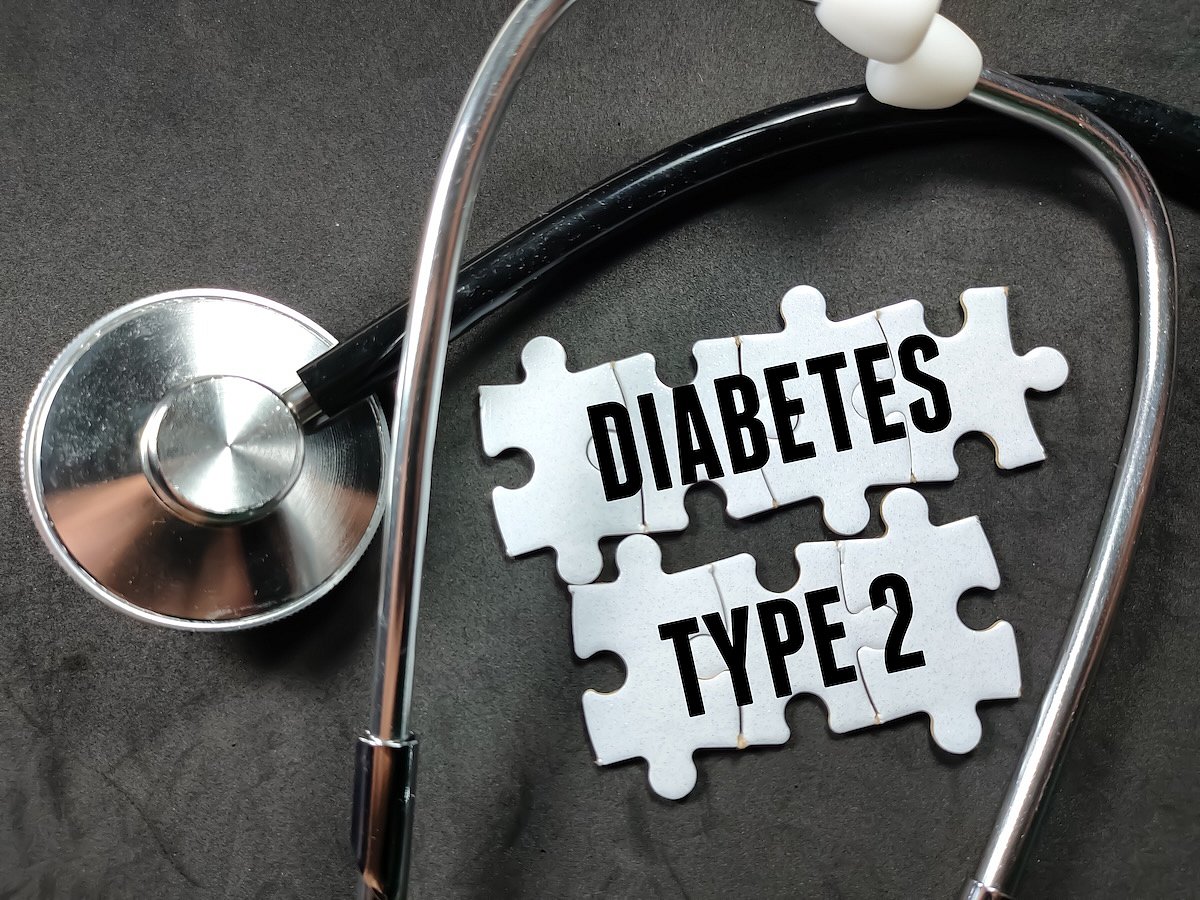
.jpg?w=1920&h=1080&mode=crop&crop=focalpoint)


